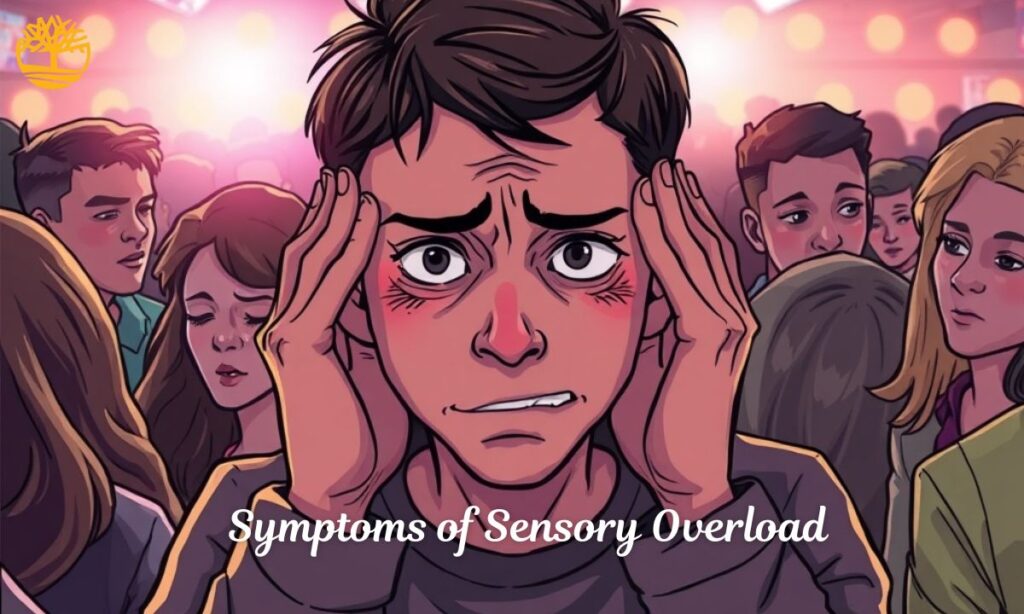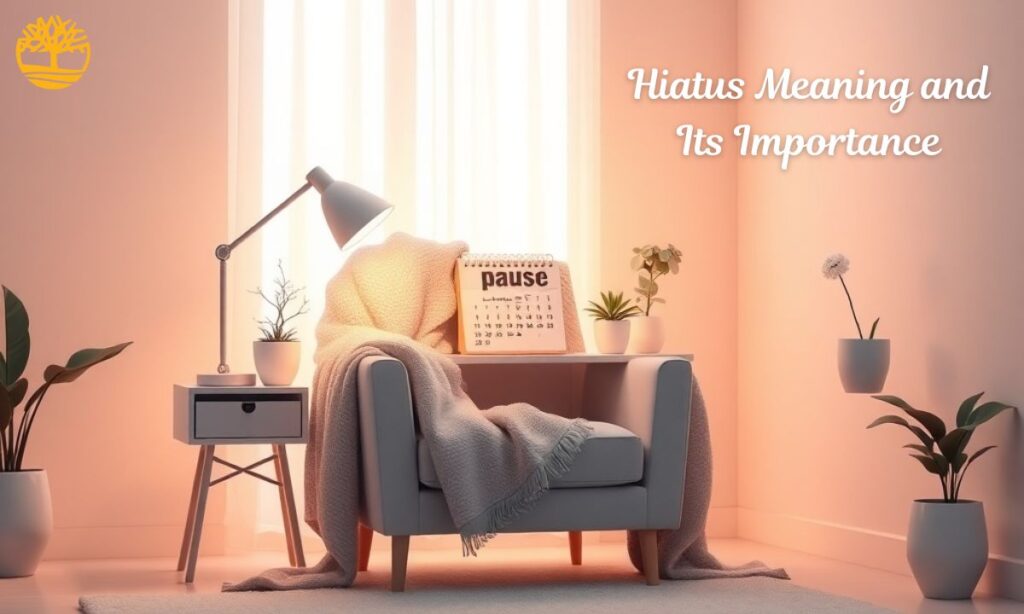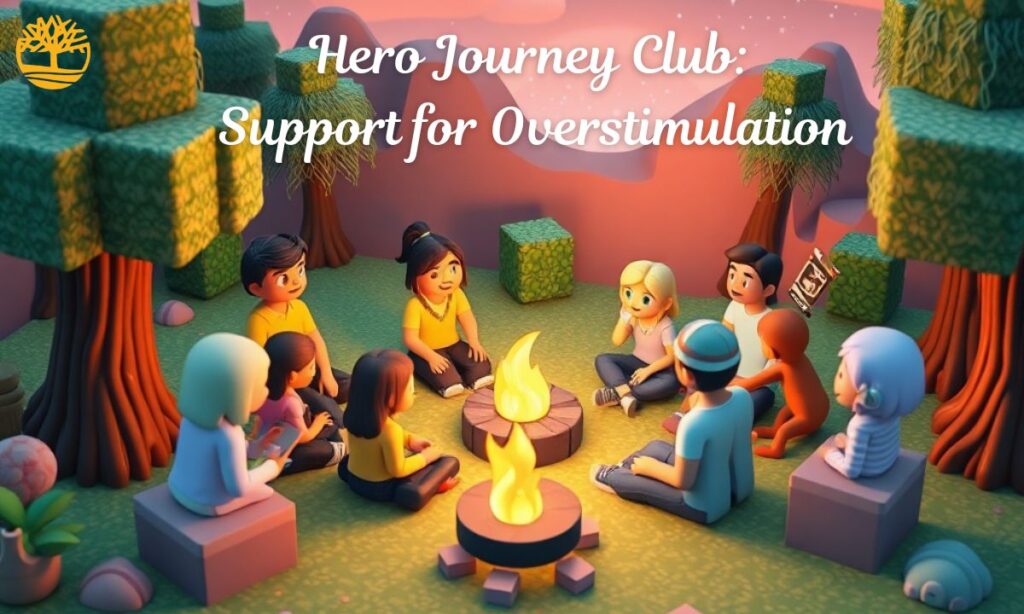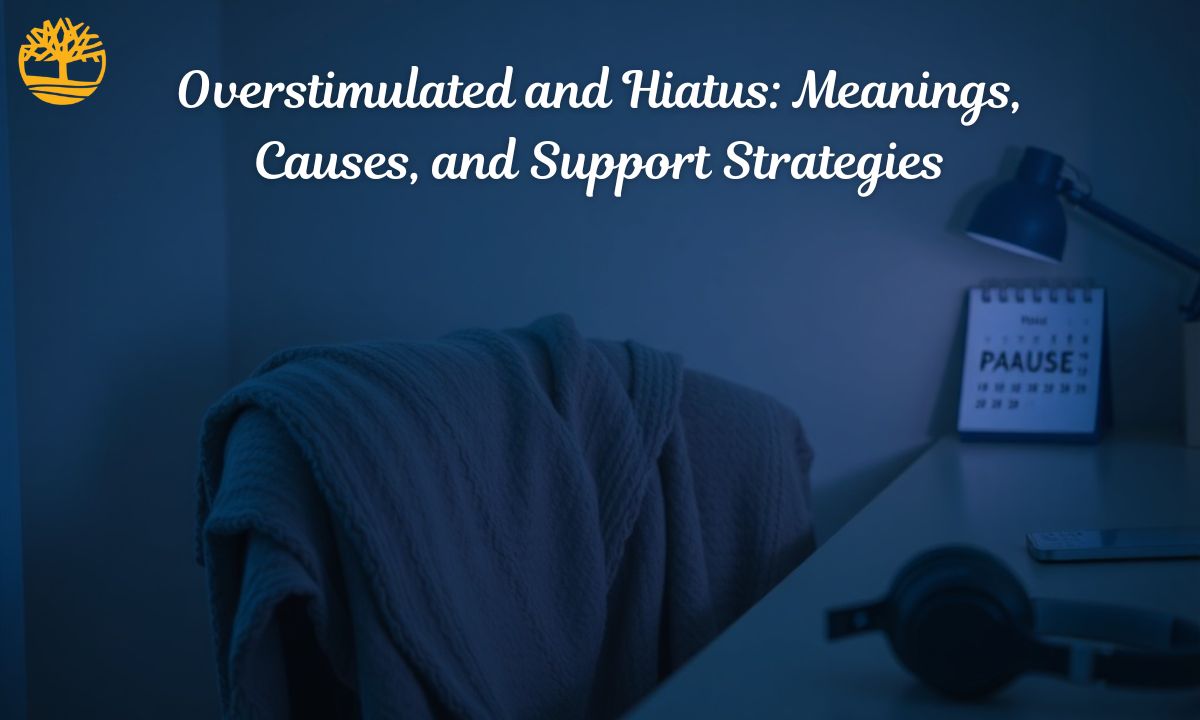Feeling drained, distracted, or simply unable to keep up? Many people today find themselves overstimulated, caught in a whirlwind of endless noise, screens, and responsibilities. On the other hand, some choose a hiatus, stepping back to pause, breathe, and regain balance.
Both states matter in our fast-paced world. Overstimulation explains burnout, while hiatus highlights recovery. Understanding these terms not only helps us recognize our own limits but also builds empathy for others who need space, rest, and support.
What Does Overstimulated Mean?
Overstimulation is when the brain receives too much input at once. This can be sounds, lights, or busy activity around you. The overload makes it hard to stay calm or focused. It often leads to stress, discomfort, or even exhaustion.
Common Causes of Overstimulation
Many triggers can overwhelm the senses. Some are part of daily life, while others are less obvious. For both neurotypical and neurodivergent individuals, the impact can be intense. Common causes include:
- Loud noises such as traffic, music, or machinery
- Bright or flashing lights in shops, events, or screens
- Crowded spaces that reduce comfort and personal space
- Strong smells or textures that feel unpleasant
- Temperature extremes like too much heat or cold
Overstimulation affects people differently. Some may feel angry or restless, while others may shut down or withdraw. Neurodivergent people often experience stronger reactions because their brains process sensory input differently. Knowing these causes helps create supportive spaces and encourages empathy in daily life.
Symptoms of Sensory Overload
When someone is overstimulated, their brain struggles to process all the input around them. This often shows up as stress in both the body and mind. People may feel irritated, restless, or uneasy in environments that seem normal to others. The intensity of these symptoms depends on the situation and the individual’s sensitivity.

Sensory overload can make daily life very challenging. It often disrupts focus, increases anxiety, and creates an urgent need to escape the environment. Recognizing the signs early can prevent emotional burnout. Below are some of the most common symptoms people experience:
- Irritability – sudden frustration or short temper
- Anxiety – racing thoughts or a sense of panic
- Difficulty focusing – unable to concentrate or stay on task
- Restlessness – fidgeting, pacing, or physical tension
- Strong urge to escape – wanting to leave the situation immediately
How to Cope with Overstimulation
Overstimulation can feel overwhelming, but there are ways to manage it. Reducing exposure, practicing mindfulness, and making small changes in the environment all help. These strategies lower stress and give the brain a chance to reset. With consistency, coping becomes easier in daily life.
Effective Coping Techniques
Coping starts with simple practices that calm the body and mind. Box breathing helps regulate stress by slowing the breath. Focusing on a single stimulus can reduce sensory input. Physical activity, such as walking or stretching, eases built-up tension. For ongoing struggles, seeking professional support is often helpful.
Common coping techniques include:
- Box breathing – inhale, hold, exhale, hold (4 seconds each)
- Focus shift – pay attention to one sound, sight, or object
- Exercise – release stress through movement
- Mindfulness – grounding exercises to stay present
- Professional support – therapy, counseling, or medical guidance
Hiatus Meaning and Its Importance
A hiatus is a pause or break from usual activities. It can be used in personal, professional, or creative contexts. People take a hiatus to rest, recharge, or step away from constant demands. This pause is valuable because it creates space for recovery and renewal.

Purposes of Taking a Hiatus
There are many reasons why people choose to pause. Some do it for rest, while others use it for personal or creative growth. A break also allows reflection and planning for the future. Hiatuses are not about quitting but about coming back stronger.
Key purposes include:
- Rest and recovery – prevent burnout and regain energy
- Creative renewal – spark fresh ideas and inspiration
- Personal growth – focus on mental, emotional, or spiritual health
- Strategic planning – prepare for future steps or projects
- Balance – create healthier rhythms in work and life
Expressing Well-Wishes During a Hiatus
When someone takes a hiatus, showing support can make a big difference. A kind message reminds them they are valued and not forgotten. Words of encouragement also help them feel comfortable about stepping back. The tone you choose can be polite, casual, or empathetic, depending on your relationship.
Well-wishes should reflect respect for their rest and space. Some people prefer light and casual notes, while others may appreciate heartfelt encouragement. Tailoring your message shows thoughtfulness and care. Here are different ways to express your support during a break:
Thoughtful ways to express well-wishes:
- Polite tone:
- “Wishing you a restful and refreshing break.”
- “Take the time you need, your well-being matters.”
- “Wishing you a restful and refreshing break.”
- Empathetic tone:
- “I admire your courage to pause and take care of yourself.”
- “You deserve this time to recharge, I’m here if you need me.”
- “I admire your courage to pause and take care of yourself.”
- Casual tone:
- “Enjoy your break—you’ve earned it!”
- “Take it easy, can’t wait to catch up when you’re back.”
- “Enjoy your break—you’ve earned it!”
- Encouraging tone:
- “This break will give you new energy and fresh ideas.”
- “Sometimes pausing is the best way to move forward.”
- “This break will give you new energy and fresh ideas.”
- Personalized support:
- Share a memory or inside joke to make them smile.
- Offer practical help, like checking in or handling a small task.
- Share a memory or inside joke to make them smile.
Hero Journey Club: Support for Overstimulation

The Hero Journey Club offers a creative way to manage overstimulation. It blends video games with therapist-led support groups. This mix makes coping both engaging and effective. The program turns play into a tool for growth and healing.
Benefits of Hero Journey Club
The club helps people face challenges in a safe space. Through gaming, members practice problem-solving and learn to manage emotions. Group sessions create trust and connection with others. Over time, these skills build emotional resilience and self-awareness.
Key benefits include:
- Emotional resilience – handling stress with greater ease
- Problem-solving skills – practicing decisions through play
- Community support – connecting with people who understand
- Safe expression – sharing feelings in guided groups
- Personal growth – building confidence step by step
Key Insights on Overstimulation and Hiatus
Overstimulation happens when the brain and body are pushed beyond their comfort zone. Recognizing it early prevents burnout and emotional distress. It reminds us that limits are not weakness but signals for care. Empathy is key because experiences differ for each person. Respecting these differences creates healthier and more supportive environments.
A hiatus provides space to recover, recharge, and reflect. It allows people to step back without guilt and return with renewed energy. Breaks also encourage self-care and personal growth. Support from others during this time makes the pause more meaningful. Together, these insights highlight the value of balance in a fast-paced world.
Frequently Asked Questions
What Does It Mean to Be Overstimulated?
Overstimulation, or sensory overload, occurs when excessive sensory input (e.g., noise, lights, crowds) overwhelms the brain, causing discomfort, anxiety, or a fight-or-flight response.
What Are the Main Causes of Overstimulation?
Common causes include loud noises, bright lights, strong smells, crowded environments, abrasive textures, and extreme temperatures, with triggers varying by individual.
Who Is Most Likely to Experience Sensory Overload?
Anyone can experience overstimulation, but it’s more common in people with autism (1% of the population), ADHD, or sensory processing disorders, though neurotypical individuals may also feel overwhelmed.
What Are the Signs of Being Overstimulated?
Signs include irritability, anxiety, difficulty focusing, restlessness, physical discomfort, and a strong urge to escape the overwhelming situation or stimuli.
How Can I Cope with Overstimulation?
Strategies include identifying triggers, reducing exposure, practicing mindfulness (e.g., box breathing), focusing on a single stimulus, exercising, and seeking support from therapists or groups.
What Does Hiatus Mean in Different Contexts?
A hiatus is a pause or break, used in professional settings (e.g., sabbatical), media (e.g., TV show breaks), or personal life (e.g., stepping back for rest or reflection).
Why Would Someone Take a Hiatus?
People take hiatuses for rest, recovery from burnout, creative renewal, personal growth, or to reassess goals and plan strategically.
How Can I Support Someone on a Hiatus?
Offer thoughtful well-wishes like “Wishing you a restful break” or “Take this time for you; we’ll be here,” tailored to their needs and your relationship.

Muhammad Shoaib is a seasoned content creator with 10 years of experience specializing in Meaning and Caption blogs. He is the driving force behind ExactWordMeaning.com, where he shares insightful, clear, and engaging explanations of words, phrases, and captions.











